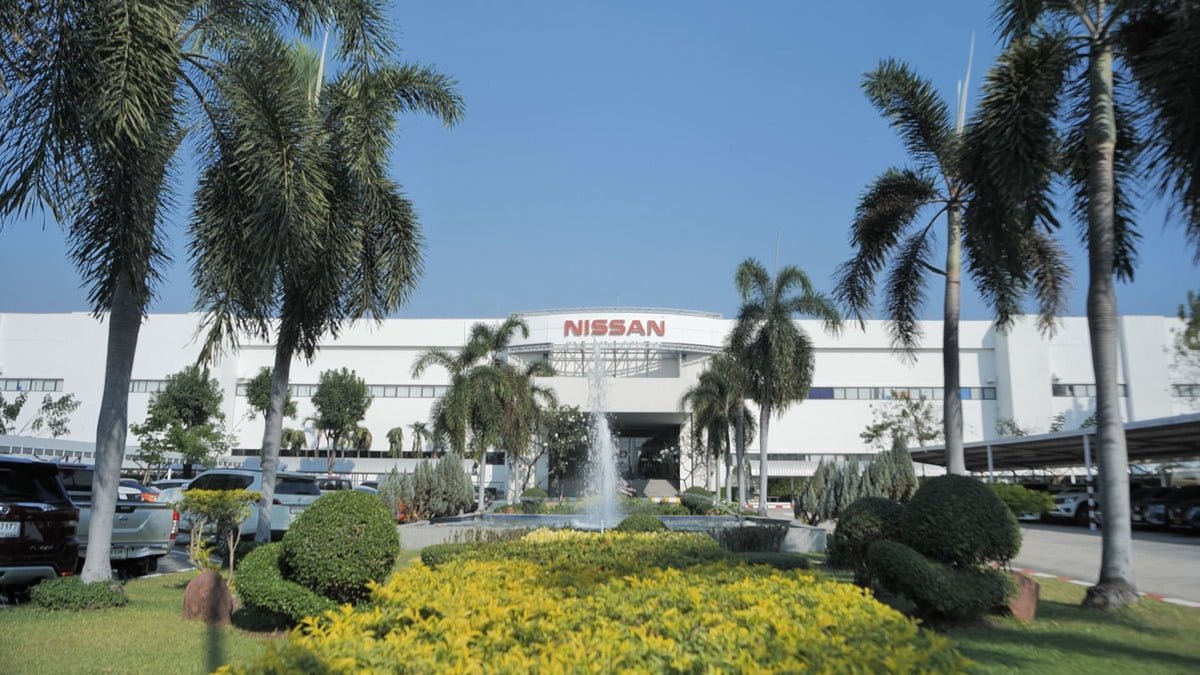Nissan Thailand strengthens the importance of climate change and environmental awareness by underlining how Nissan Thailand can contribute towards carbon neutral society.
Nissan Thailand, as a regional production hub in ASEAN, believes in the automotive industry’s power to make a difference through green innovation and solid action to reduce impacts on the environment. In further driving innovations that enhance people’s quality of life while promoting sustainable development, Nissan has not only focused on electric and electrified vehicle development, such as its proprietary e-POWER electrified technology but has also seriously promoted awareness of environmental conservation among its employees and all stakeholders. The carmaker has continuously worked with its partners, both locally and worldwide, to improve the production process and environmental impact management. Such efforts Nissan Thailand has been rewarded with the Green Culture Award (Level 4) it received from Thailand’s Ministry of Industry in 2022.
Nissan has implemented work regulations and a green culture mindset in its offices and manufacturing facility to lessen the effects of its operations on the environment in four areas and to support sustainable development.
Waste separation
Efficient waste separation is the first step towards protecting the environment. With the knowledge that different types of waste require different management, Nissan Thailand has encouraged effective waste separation in its office and production facilities. Recycled, general waste, wet waste and hazardous waste are all separated. Materials that can be recycled are reused. The non-recyclable waste will be properly managed. This helps reduce emissions and the release of greenhouse gas from waste burning.
Water recycling and Zero Water Discharge
Since 2014, Nissan Thailand has initiated and introduced water recycling and a zero-water discharge system to reduce water pollution at Plant 2 where Nissan Thailand produces light commercial vehicles (LCVs). With the recycle reverse osmosis system, Nissan can today efficiently treat wastewater from its production process and benefits from more than 300 cubic meters of recycled water that can be used in plant 2. Thanks to the recycled water system, no wastewater is released into natural water sources.
Increasing green area through Tree Planting Project
The Tree Planting Project implemented in Nissan’s manufacturing facility area at Bangna-Trad KM.21 and KM.22, Samutprakarn province, can generate more fresh air while also enhancing the community’s green space. More than 900 trees planted by Nissan employees are today helping to increase oxygen and absorb PM2.5 dust and carbon dioxide. The company will continue this project to achieve a bigger goal of growing green areas.
Generating clean energy under the Solar Rooftop Project
The solar rooftop plays a significant role in making Nissan’s manufacturing for its light commercial vehicles, truly green and community-friendly. Over 60,000 square meters of the roof are covered with solar cells which generate as much as 5.5 megawatts for use in Nissan’s LCV production. This also reduces carbon dioxide emissions by 5,100 tons annually. With significant improvements, Nissan has become Thailand’s production facility with one of the largest solar roofs and the most tangible deployment of solar energy in the country’s automotive industry.
“At Nissan every day is Earth Day. Nissan Thailand is committed to driving our business forward and paving the way toward a carbon-neutral society. We encourage every one of our employees to be environmentally conscious on a day-to-day basis. From environmentally friendly innovations and product line-ups, we make sure a sustainable production process is in place and avoid unnecessary pollution. Most importantly, we instill awareness among our employees and encourage them to work together to reduce our potential impact on the environment. This has created a strong organizational culture. Whatever we do today will bring Nissan to the goal of achieving net-zero emission and we take pride in this contribution and accomplishment.,” said Isao Sekiguchi, Nissan Thailand’s President and President of Nissan ASEAN.
Nissan Thailand’s contributions are also in line with Nissan Global’s Ambition 2030 vision to empower mobility and beyond. Read more about Nissan’s Ambition 2030 vision here.
